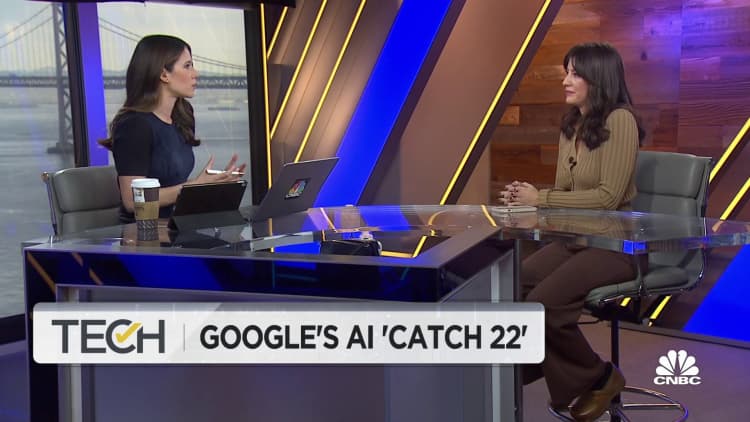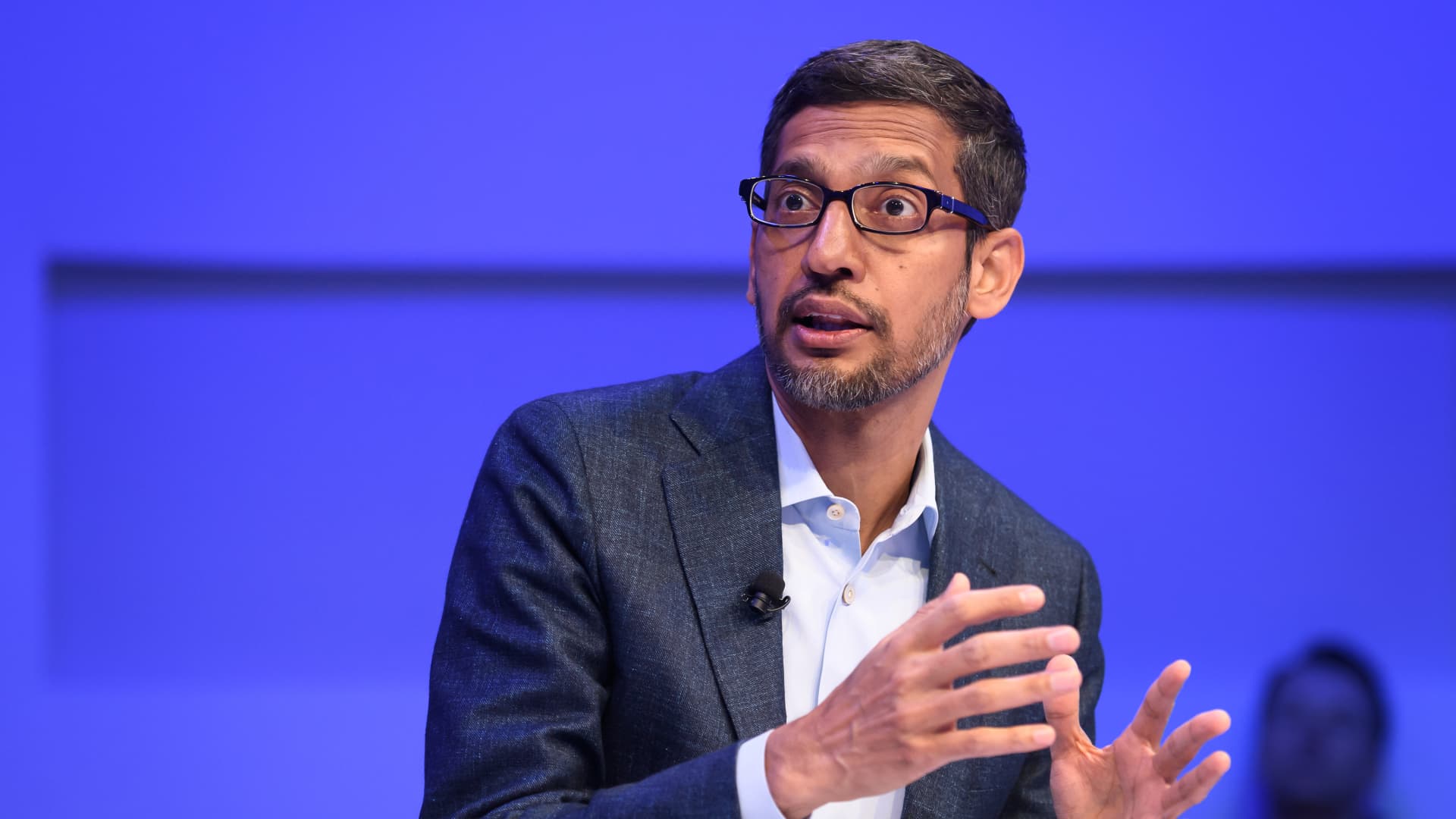Alphabet CEO Sundar Pichai gestures during a session at the World Economic Forum (WEF) annual meeting in Davos, on January 22, 2020.
FABRICE COFFRINI | AFP | Getty Images
Google CEO Sundar Pichai defended the cloud unit’s new desk-sharing policy for employees, describing some of the company’s offices as practically empty and reminding staffers that real estate is pricey.
“To me it’s obvious that they are trying to be efficient and save money but at the same time also utilize resources,” Pichai said in a companywide meeting last week, according to audio obtained by CNBC. “There are people, by the way, who routinely complain that they come in and there are big swaths of empty desks and it feels like it’s a ghost town — it’s just not a nice experience.”
related investing news


Pichai’s comments follow a CNBC report last month about Google’s plan to ask cloud employees and partners to share desks at the division’s five largest locations, which include New York and San Francisco. The company is calling the downsizing effort Cloud Office Evolution (CLOE).
On Alphabet’s fourth-quarter earnings call in early February, executives said they expect Google to incur costs of about $500 million in the current period related to reduced global office space, as the company reckons with slowing revenue growth and ongoing recession concerns.
Pichai indicated that there are many people coming to the office “only two days a week,” which he said makes for an inefficient use of current space.
“We should be good stewards of financial resources,” Pichai said. “We have expensive real estate. And if they’re only utilized 30% of the time, we have to be careful in how we think about it.”
At the same all-hands meeting, Anas Osman, Google Cloud’s strategy and operations vice president, said about one-third of employees were coming into the offices at least four days a week, citing data from a pilot the group conducted in regards to returning to physical locations.
As part of the pilot, Osman said, employees were given the option of having a dedicated or a shared desk.
“Those one-to-one desks actually were utilized roughly 35% of the time at four days or more,” Osman said. “We think this is a good balance of how to both find efficiencies and create a better experience.”
In some ways, sharing also led to more productivity, he said.
“The data from the pilot shows that Googlers reported significantly better collaboration when they had assigned days in the office even if that was in a rotational model and a shared desk,” Osman said.
Pichai said the new policy is just for cloud employees at the moment, and added that the company is “giving teams freedom to experiment.” The cloud division makes up roughly a quarter of the company’s overall workforce.
During the meeting, Pichai addressed employee concerns regarding the rollout of the desk-sharing policy and how it was communicated to the workforce. CNBC previously reported that memes started showing up in the internal Memegen system criticizing the messaging from leadership. One popular meme said, “Not every cost-cutting measure needs to be word mangled into sounding good for employees.”
In responding to questions and comments submitted by employees, Pichai read one that said, “double speak is disrespectful and frustrating,” and “bad things happen, no need to make every bad thing sound like a miracle.”
Pichai said in response, “I agree with the sentiment here. The feedback is valid.”
“We should always strive to be as straightforward as possible,” Pichai said. “I think it’s important to understand at our scale, pretty much all communication are public in nature. You’re speaking to the world and there are many, many stakeholders and so at times, nuance is important and words can have a material impact and I think sometimes you see that reflected in some of the communications.”
A Google spokesperson didn’t immediately respond to a request for comment.
WATCH: Google AI’s response to ChatGPT







